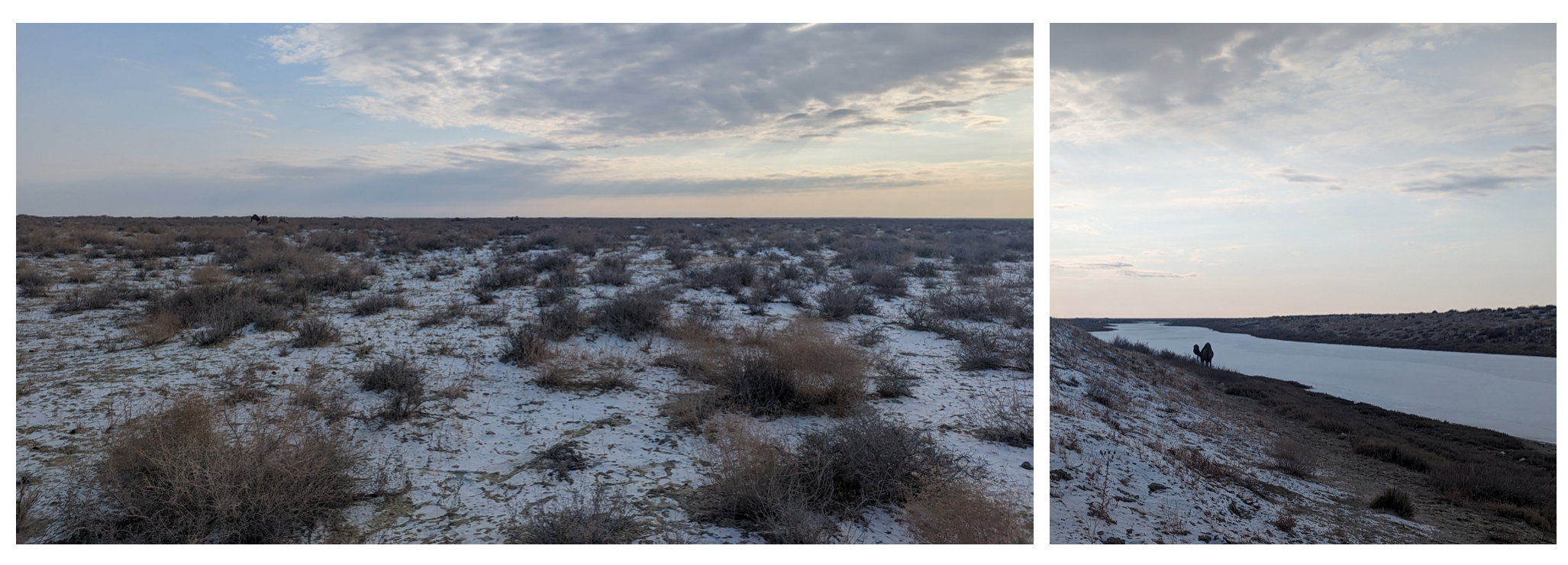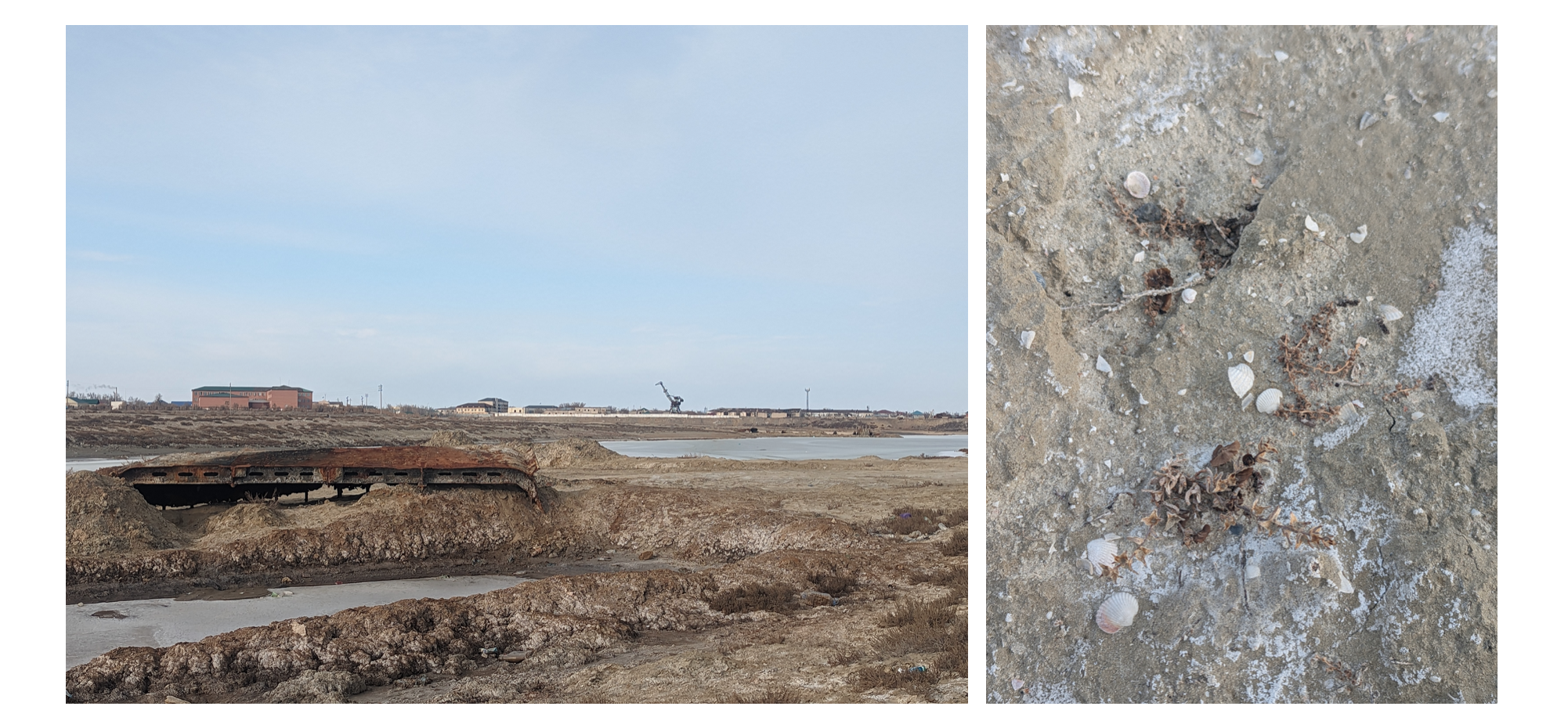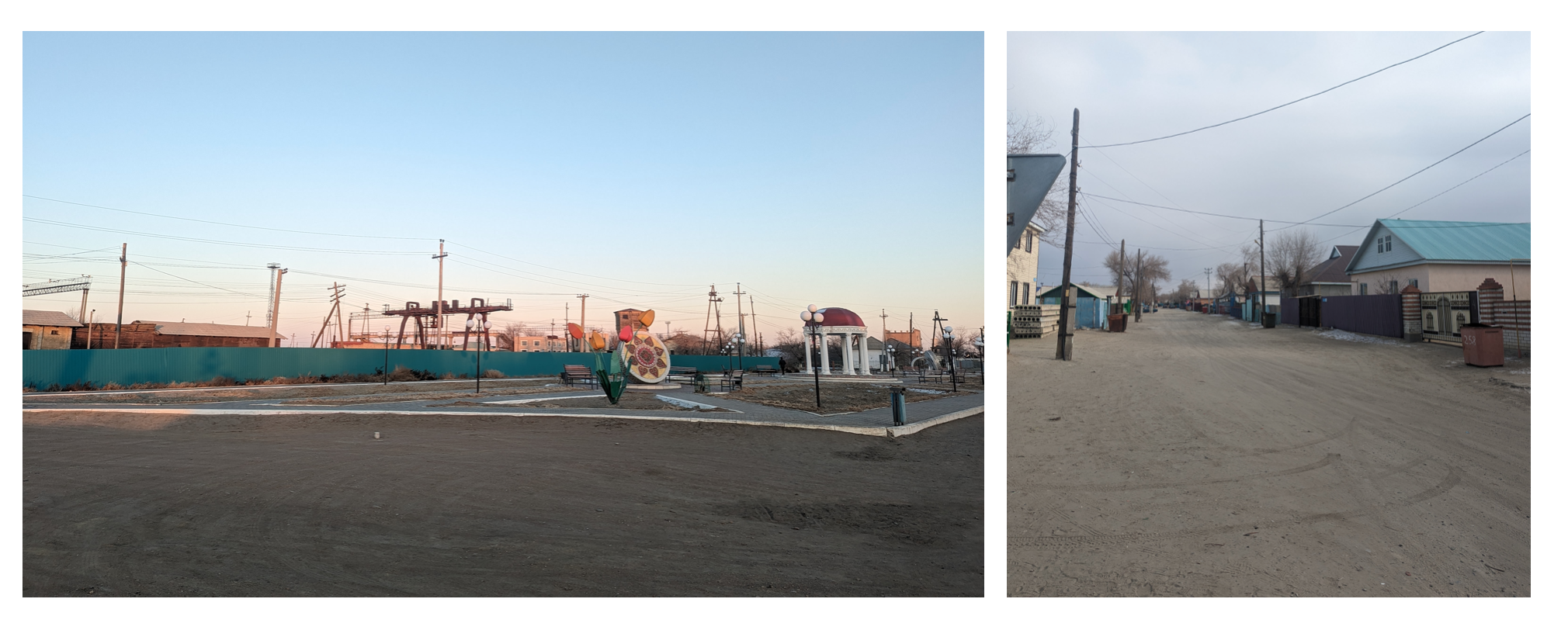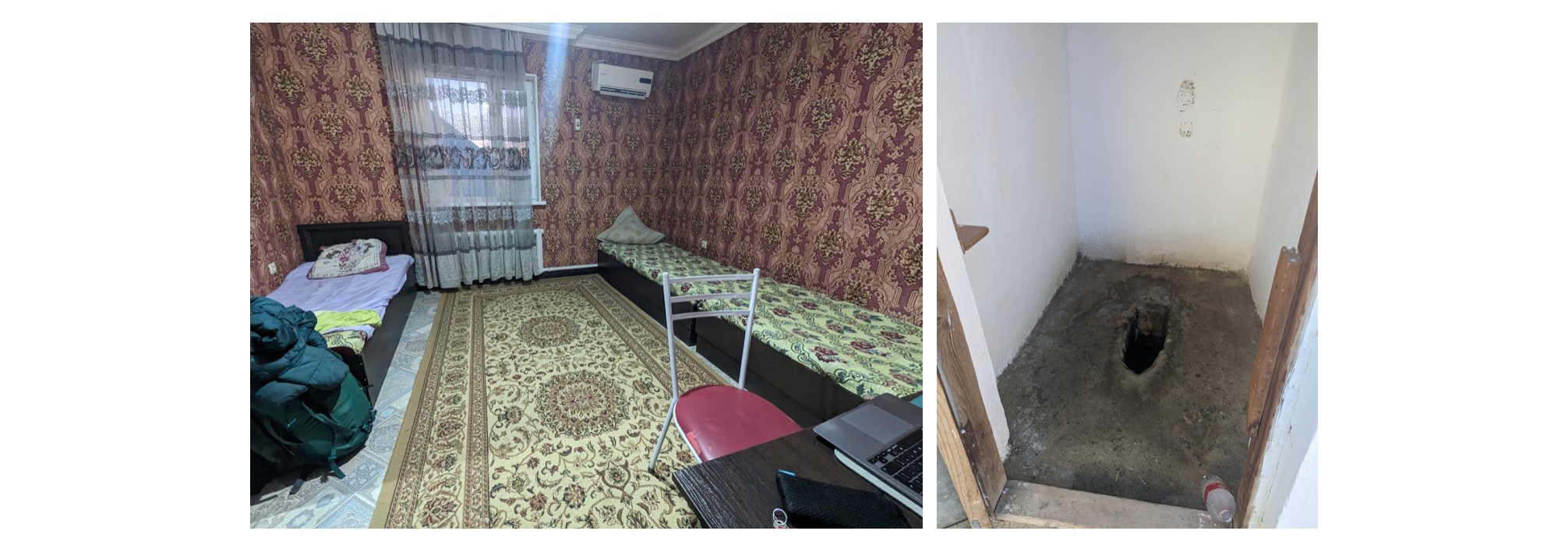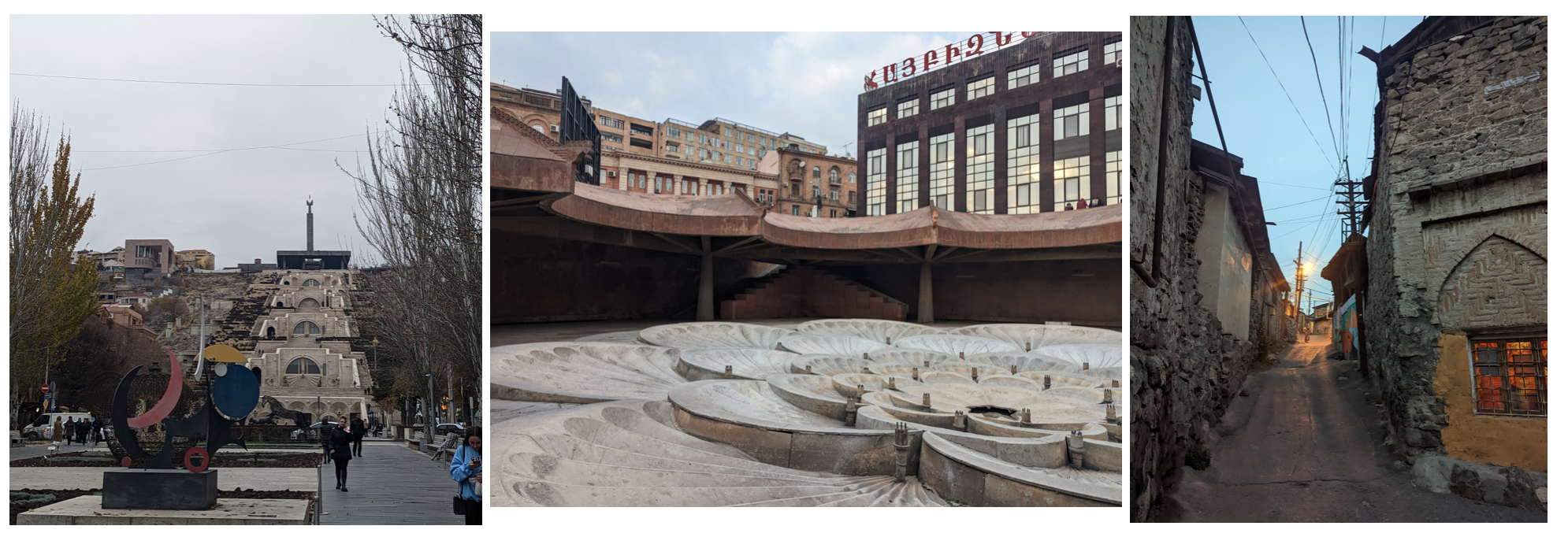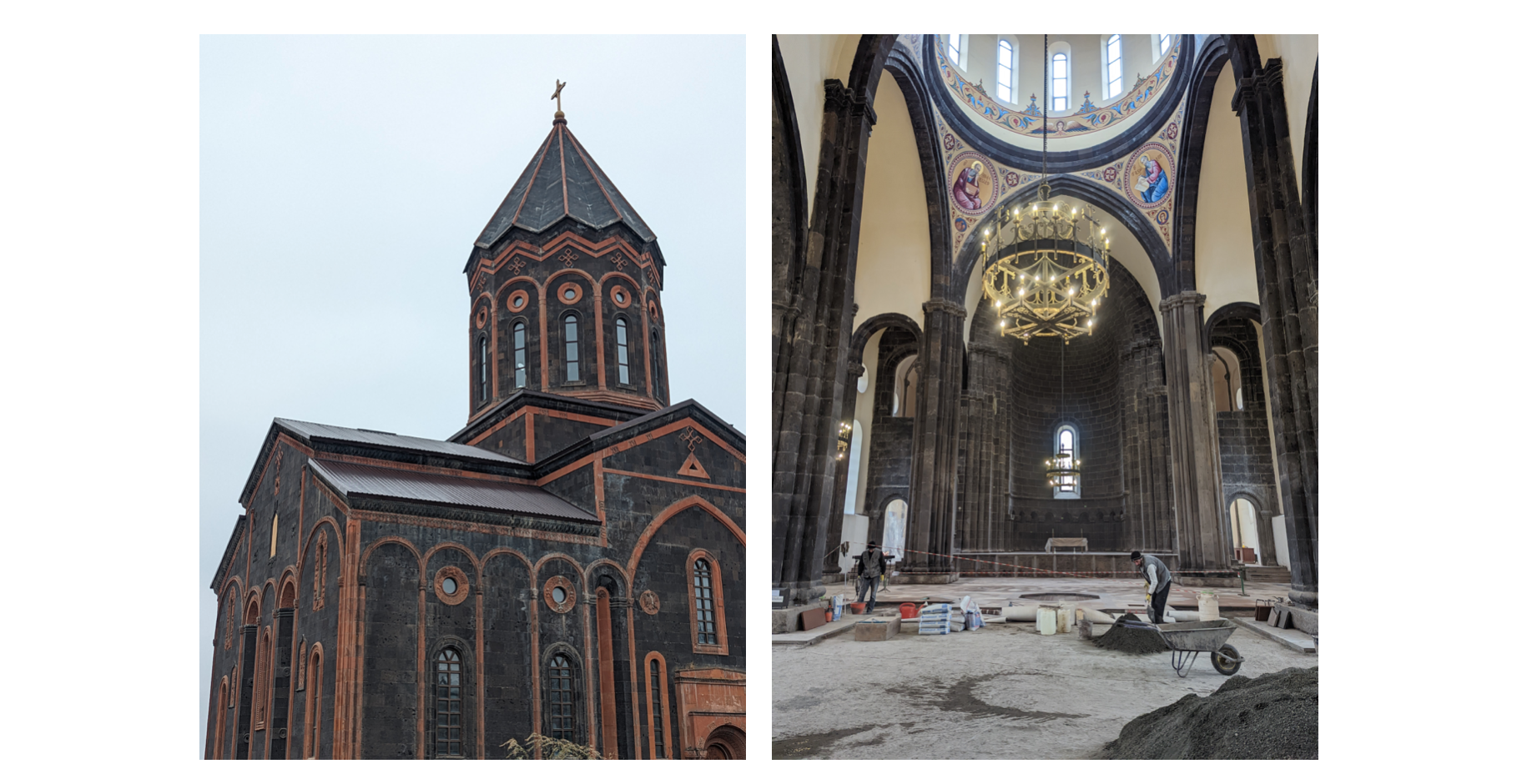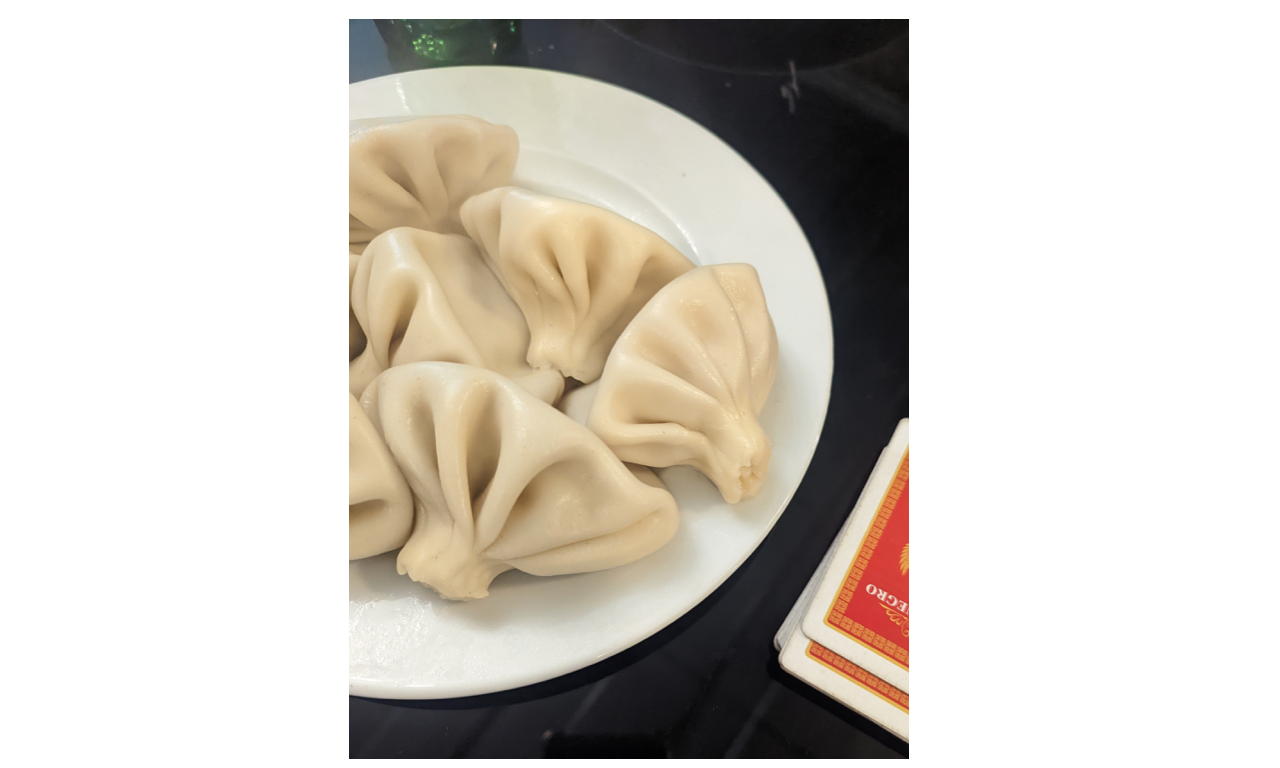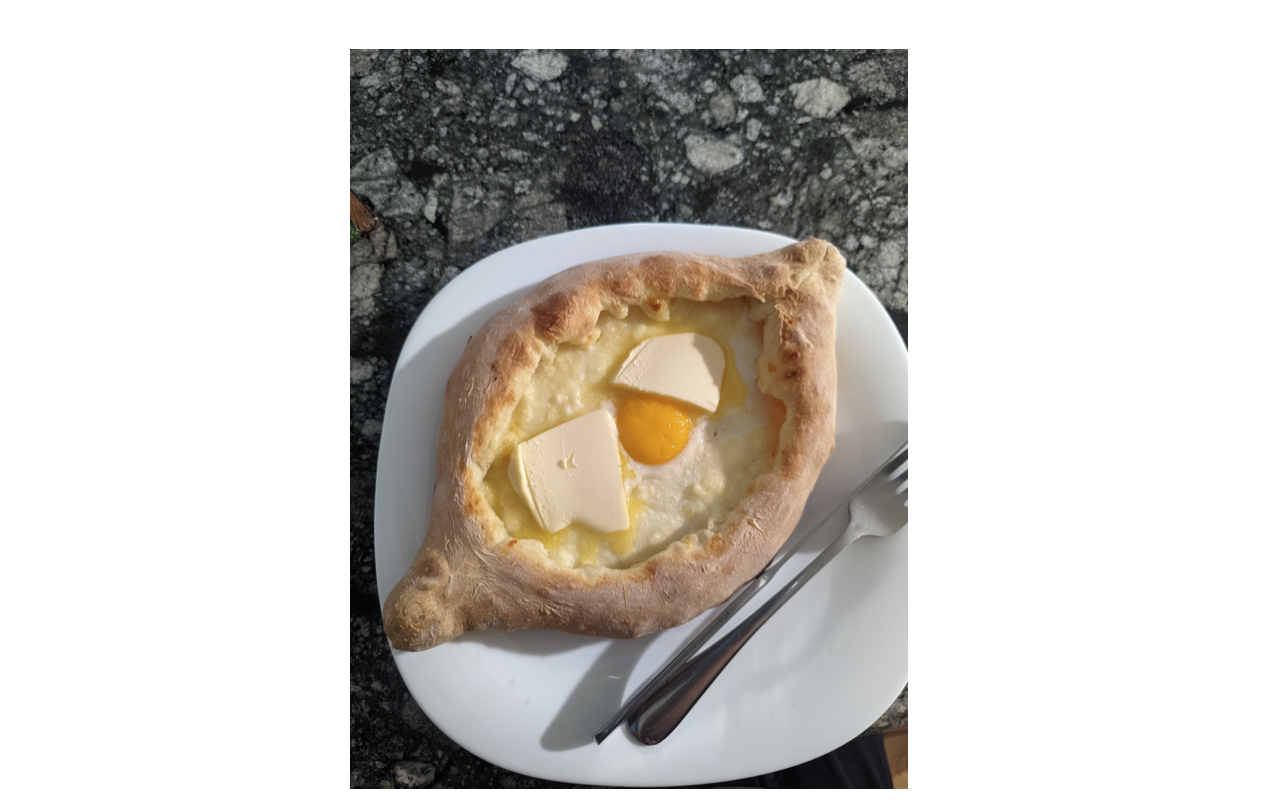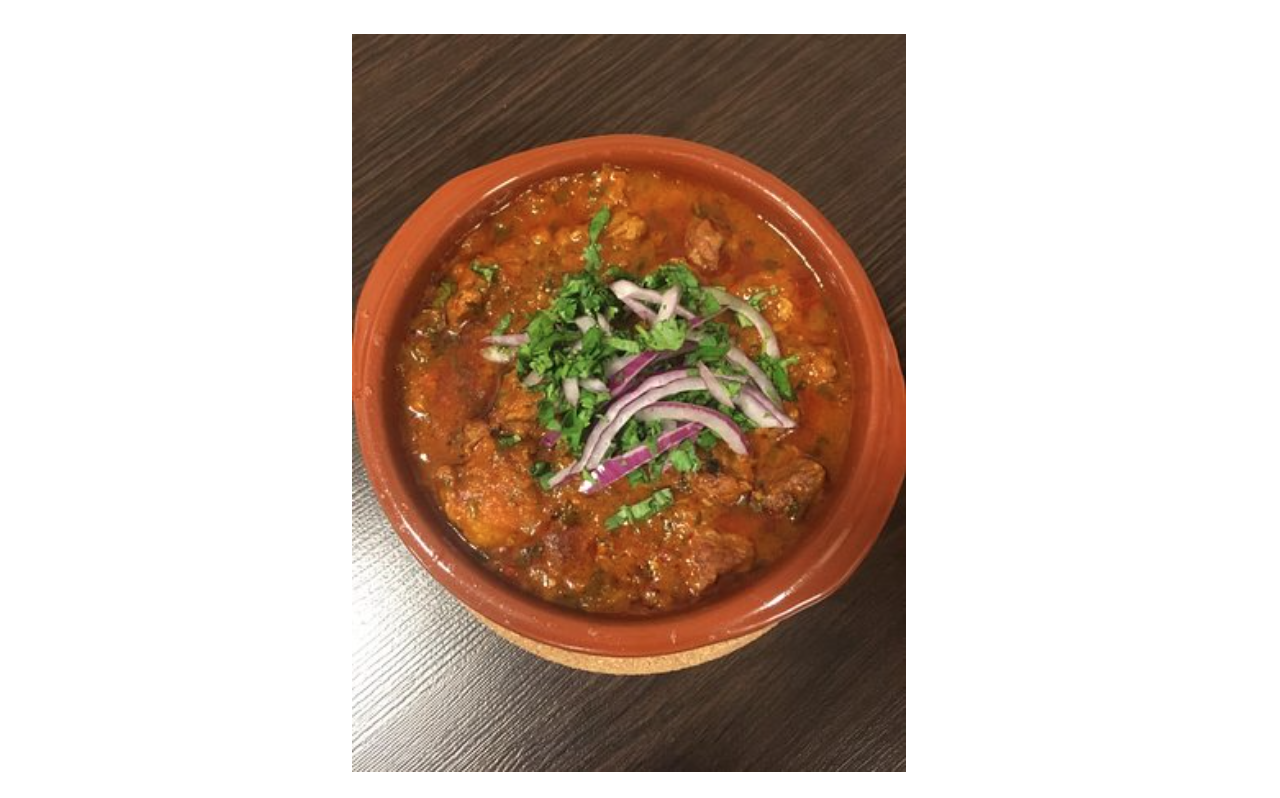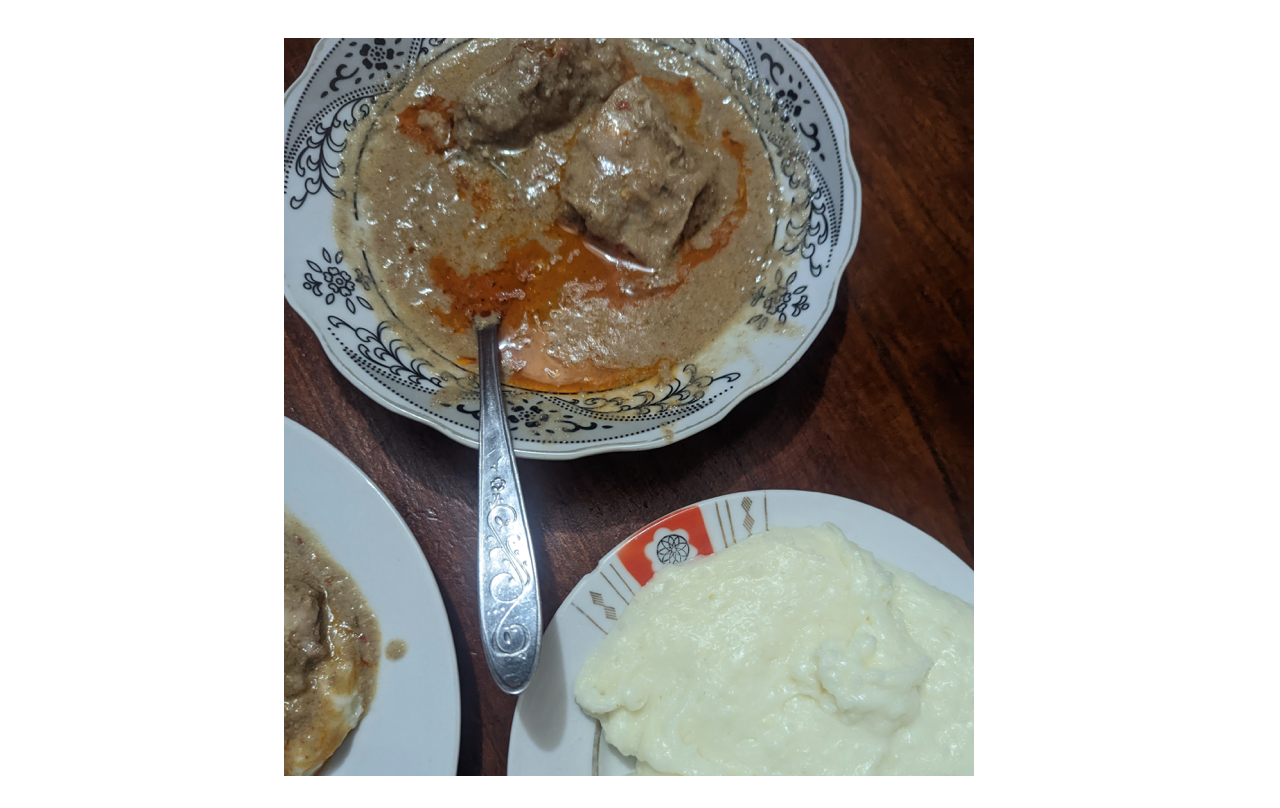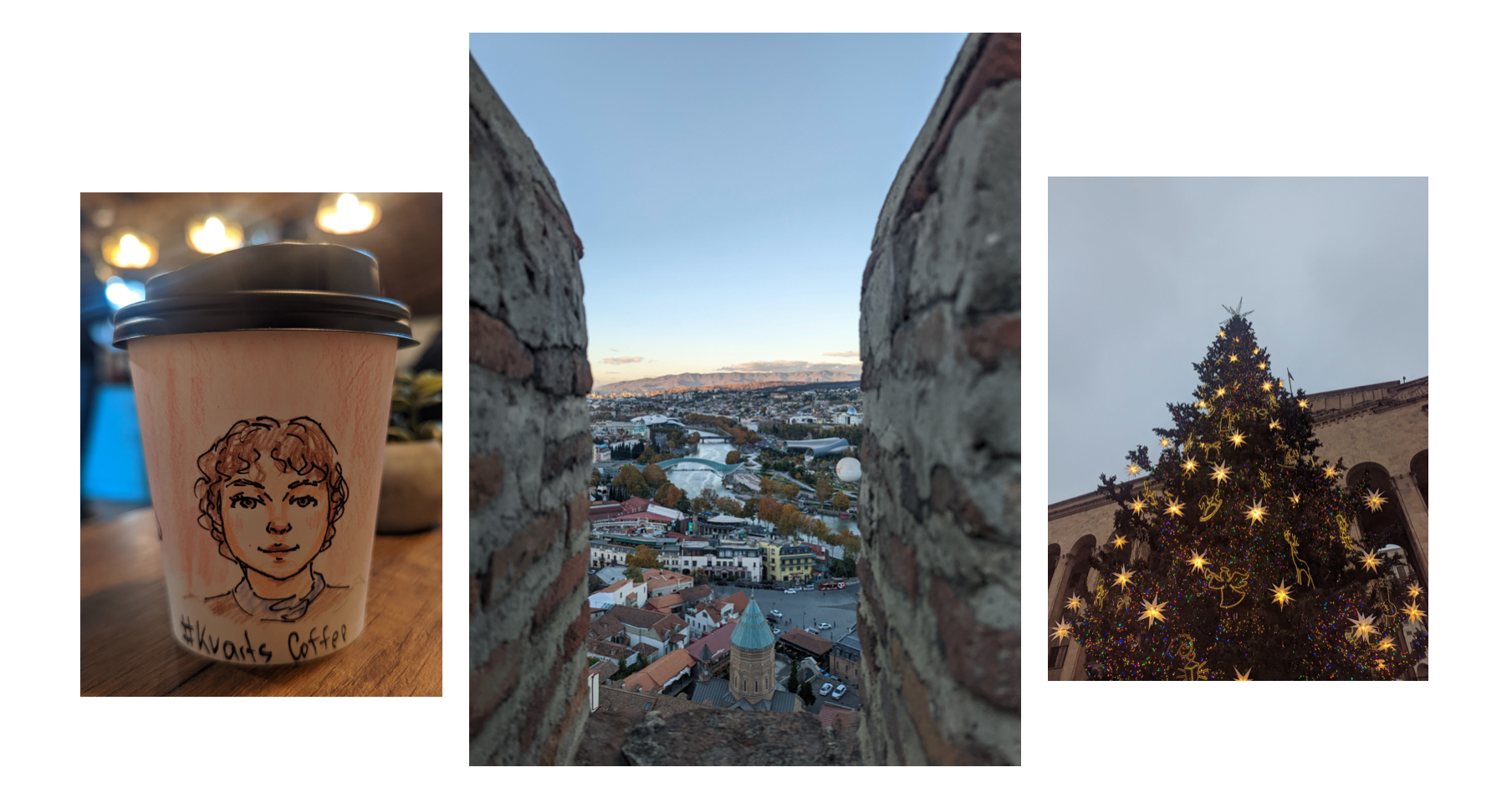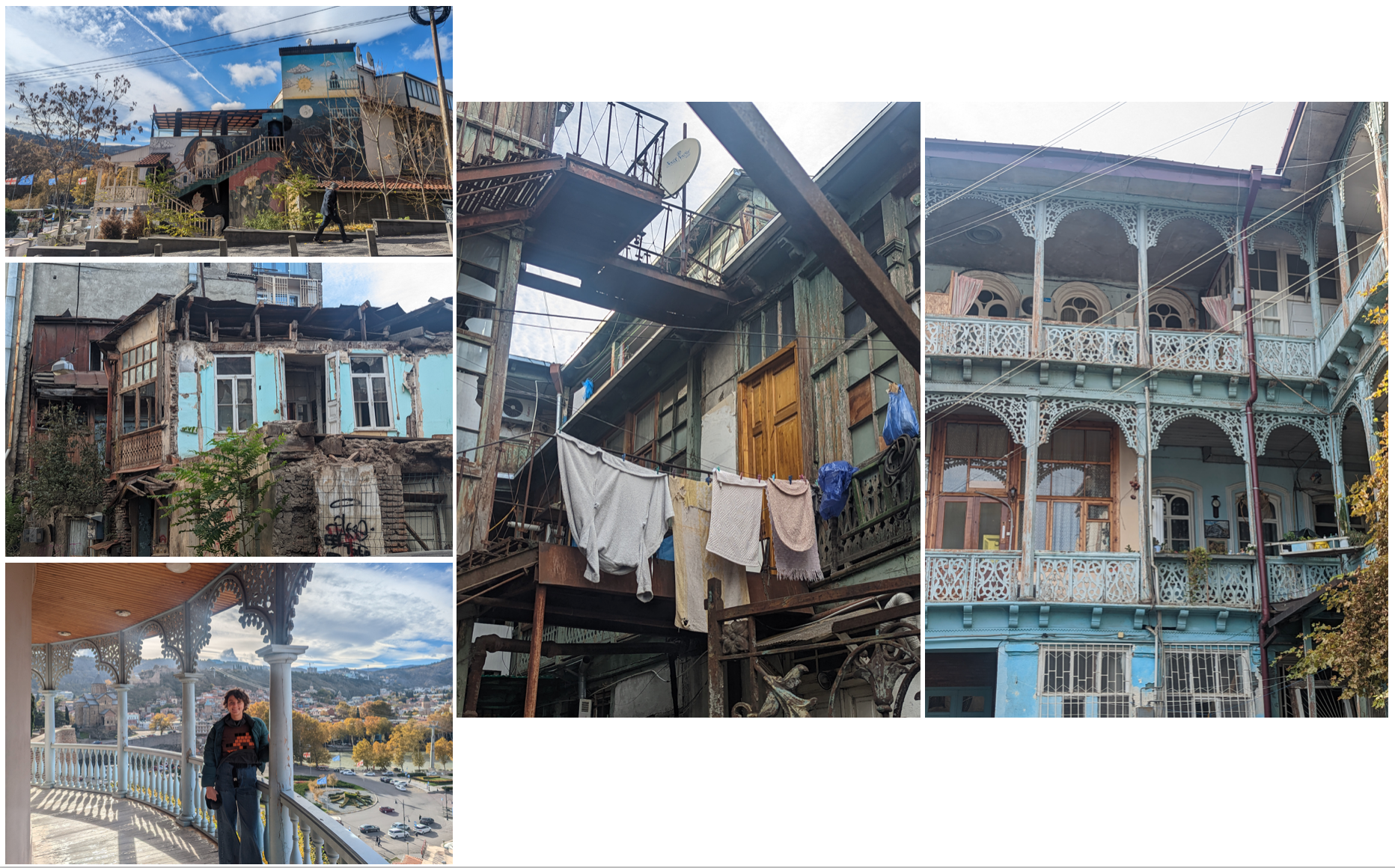Ever since late October Christmas had been on my mind. I was apprehensive about it. I thought it might be the event that finally pushed me to feel properly homesick. I was expecting to feel sad. As it got to mid-December I had stopped thinking about it so much, being preoccupied with navigating Kazakhstan and all of the new experiences. I had several options on where to stay for Christmas and I was struggling to decide what I wanted to do - staying with a host through the facebook page ‘Host a Sister’ (a really lovely community of female travellers), a host through couchsurfing, or a hostel. After talking it through with a friend over the phone I realised what I wanted - to have my own space to have the Christmas I wanted, so a hostel it was!
Kazakhstan doesn’t celebrate Christmas. The majority religion is Islam, followed by Orthodox Christianity (which celebrates Christmas on the 7th January). As in all post-Soviet countries, any Christmas celebrations were crushed and the focus was moved to New Year instead. Despite this, there were a huge number of Christmas decorations around the city, including several Christmas trees (dubbed ‘New Year’s trees’).
Christmas Eve
A day of preparations! I did a Christmas food shop and treated myself to all sorts of goodies like lobster flavoured crisps and Ferrero Rocher. But my main mission was buying ingredients for a dessert. I had moved into a hostel this morning and it didn’t have an oven, only hobs, so my original plan of making brownies was scrapped and replaced with rocky roads. Back at the hostel I listened to Christmas music as I baked, having a wonderful time. The Irish couple I’d met back in Georgia were also in Almaty for Christmas and we had arranged to meet for a Christmas Eve dinner, deciding on a highly rated Indian restaurant. It was really lovely to catch up with them and compare our Kazakh experiences, and the Indian food was delicious. We spoke about what we’d usually be doing on Christmas Eve, and how we felt about spending it away from home. We met up with some others from my hostel for a pint at a bar and I was finally starting to feel a little bit Christmassy.
Christmas Day
I woke up in my hostel dorm bed and smiled to myself - what an odd place to spend Christmas. I didn’t feel very Christmassy, but I didn’t feel sad so that’s something. I did some yoga in the common space, with the hostel kitten joining in providing a very cute start to the day. I went for a snowy walk in the park nearby, listening to more Christmas music, and then to a nice cafe for a coffee and pistachio croissant for breakfast. At home we always have croissants for breakfast at Christmas, so it was a nod to that tradition. It was strange to not wish the barista ‘Merry Christmas!’ and for her to not wish it to me. I read my book and journaled whilst I savoured my coffee, feeling really thankful for the opportunity to create a lovely Christmas day for myself. As I got up to leave the cafe, the barista placed a drawing of me on my table. It brought some Christmas magic to the day, and brought a huge smile to my face. I slipped the picture into my bag and strolled out onto the snowy streets feeling excited for the rest of the day. Back at the hostel I took my time getting dressed up like I usually would on Christmas day. Through a very tangential link, I had been put in contact with someone who was studying a masters in Almaty, and she had invited me along to her friends’ Christmas lunch. It was really wonderful and a whole lot of fun. It was a big group of masters and PhD students (and one erasmus student from Oxford, you can never truly escape it seems!) from the UK, Ireland and the US. Tara (the host) cooked up an amazing meal: beef wellington, roast potatoes, stuffing, gravy, the lot! We polished off numerous bottles of Soviet champagne and wine. My rocky roads went down a treat, alongside a huge spread of other desserts. The party continued until midnight and whilst it lacked trivial pursuit and cold turkey sandwiches, it was a very pleasant way to spend Christmas day and I was shocked at my luck to have found this group of people! Back at the hostel, I had a quick call with my family (them being 6 hours behind meant they were still enjoying their Christmas evening) and it was lovely to at least virtually see their faces.
It was a Christmas day of two halves. The first half I spent alone, really enjoying spending the day in my own company and appreciating the unusual slow and quietness of the day. The second half I spent surrounded by new friends, celebrating in the usual way. It was the most perfect Christmas Day away from home, and I feel so lucky it turned out that way! Just more proof that everything really does work out in the end.

Boxing Day
It turns out that Christmas lunch was the just beginning of lots of adventures with this new group of people. I woke up the earliest I have ever woken up on Boxing day ready to meet some of them for a day of skiing at the nearby ski resort - Shymbulak. It’s only a 30 minute bus ride from the city which is so cool. We arrived at 9am and hired all of the kit, catching the gondola up to the resort. What followed was a full day of amazing fun. I’d never skied before so the day also included a lot of falling over for me, but that didn’t detract from the fun for a second. Even when I was being dragged along by one leg by one of the strange ski lifts, unable to unhook myself for quite some distance… The weather was ideal, bright sun and blue sky. As much as I love the traditional Boxing Day walk back at home, I might have to say that this was an even better way to spend the day! Exhausted from the full day on the slopes, we went out to a Georgian restaurant for dinner and the familiarity of the food brought back so many fond memories. I couldn’t believe how lucky I was. It was one of the best days of my trip.

New year’s eve
Fast forward a week and it’s New Year’s Eve! I’m still in Almaty, having being persuaded to stay by the lovely people from Christmas. I was staying with Oksana (thank you again!) and she decided to host a Russian NYE feast. I’ve been missing cooking so I was very happy to help. The entire afternoon was spent boiling every vegetable imaginable, then chopping them up, the basics of all Russian cooking it seems. Everyone seemed to enjoy the food so I’d say it was a success, and the Irish couple also joined which was great! At midnight we watched the Kazakh countdown and did both the Spanish (one of the guests was Spanish) and Russian traditions, making it a very stressful last 12 seconds of 2022. The Spanish tradition is to eat one grape for each of the last 12 seconds, and the Russian is to write a wish on a piece of paper (if you have very keen eyes you might be able to make out mine and Teresa’s wishes from the photo), burn it at midnight and place the burning paper into your champagne and drink the ashes. We forgot to factor in the fact that we were drinking from plastic cups however, so it was a bit of a disaster… But we made it to the new year - so happy 2023 everyone! We went out to a nightclub and were shocked to find it had snowed heavily whilst we’d been eating, so there was now around 20cm of snow on the ground. It was beautiful. We marched through this to the club, and I had my first taste of Kazakh clubbing. It’s the same as clubbing anywhere else, but with more russian music.
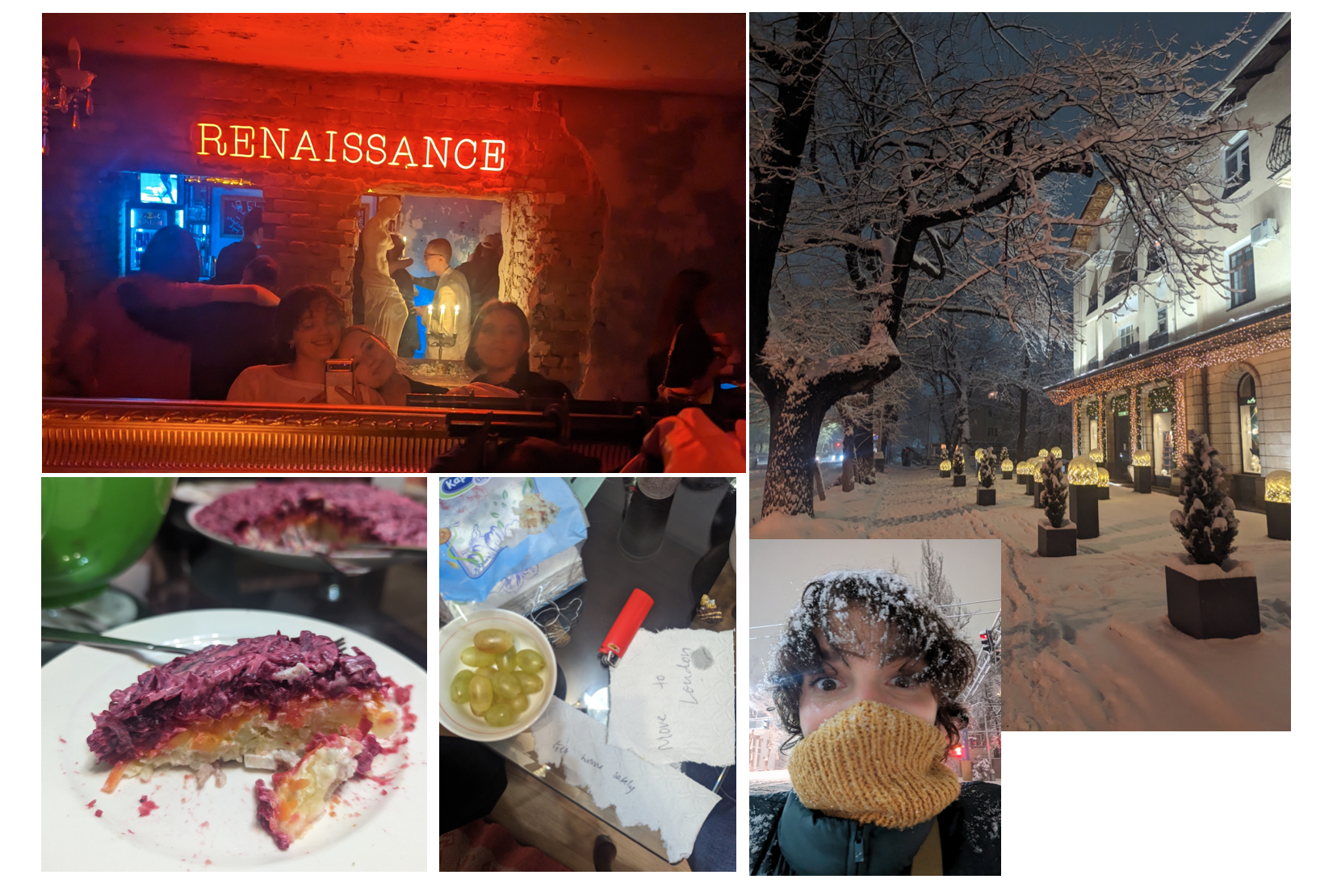
I can’t believe it’s 2023. The year I start my job as a lawyer (finally!). But that’s still 8 months away, with a lot more travelling in between. I didn’t think about making any New Year’s resolutions this year, but as I write this I think I will make one. To be more present. To appreciate each day and not worry about the next. I can feel the time flying by and I know I’ll be flying back to England before I know it, so I really want to enjoy the time I have left travelling whilst I’m out here! Something about the holidays has made me want to be extra mushy and say that I’m so thankful for all of my friends (old and new) and the effort they have put into staying in contact. Being away from them has made me appreciate all of them so much. I hope all of them have an amazing 2023 and I can’t wait to see everyone again this year!
No one is more surprised than me that I didn’t feel homesick over the Christmas period! I guess having no expectations about how the day would go, and being happy to just make it a nice day spent alone, might have helped. However, waking up hungover on New Year’s day did see me a tad homesick. My family were in Cornwall, swimming in the sea and walking along empty windy beaches - my absolute favourite thing to do in the winter. I wanted to be doing it with them. I missed getting soaked and cold and sheltering in a pub, drinking a pint of ale, eating a packet of crisps, and defrosting by the open fire. I missed hurrying around seeing friends before we all went our separate ways again. Once my hangover had worn off a bit, and I’d done some yoga and gone for a snowy walk and drank a nice coffee, I’m happy to say the homesickness had vanished. I’m glad I had one morning with its presence. It means the return back home in 7 months’ time won’t be all sad!










